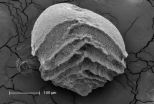(Press-News.org) A new Yale-led study challenges the long-held assumption that climate is the primary driver of how quickly organic matter decomposes in different regions, a key piece of information used in formulating climate models.
In a long-term analysis conducted across several sites in the eastern United States, a team of researchers found that local factors — from levels of fungal colonization to the specific physical locations of the wood — play a far greater role than climate in wood decomposition rates and the subsequent impacts on regional carbon cycling.
Because decomposition of organic matter strongly influences the storage of carbon, or its release into the atmosphere, it is a major factor in potential changes to the climate.
The findings underscore a key limitation of using aggregated data across wide geographic areas to predict future climate change, said Mark A. Bradford, an assistant professor of terrestrial ecosystem ecology at the Yale School of Forestry & Environmental Studies (F&ES) and lead author of the study published in the journal Nature Climate Change.
They also suggest that better identifying and measuring such hyper-local ecological factors could significantly improve the effectiveness of climate change projections, he adds.
"We're reaching the wrong conclusion about the major controls on decomposition because of the way we've traditionally collected and looked at our data," Bradford said. "That in turn will weaken the effectiveness of climate prediction."
It has long been thought that climate is the predominant factor controlling decomposition, mainly because warmer temperatures increase the activity levels of the "decomposer" organisms, such as microbes, that break down dead organic matter.
While scientific studies have revealed the critical importance of climate and temperature in determining decomposition rates across regional and global scales, the findings are often based on the mean response of decomposition across large areas.
According to Bradford, the use of mean responses can mask the local-scale information, such as the abundance of soil fungi and animals, which may be more important in governing the release of terrestrial carbon.
To better assess the importance of those local effects, the researchers distributed 160 blocks of pine tree wood across five sub-regions of temperate forest in the eastern United States — from Connecticut to northern Florida — and then monitored the decay that occurred over 13 months.
They selected similar forest types in order to focus on major differences in the effect of climate across the regional gradient. (The average annual temperature in southern New England is about 11 degrees Celsius cooler than Florida.) But within each of the five sub-regions they placed the wood blocks in different types of terrain to evaluate the effects of local versus regional factors on decomposition and capture the variability found in forest environments.
"Most people would try to make sure everything was as standard as possible," Bradford said. "We said, 'Well, let's generate as much variation as possible.' So we put some blocks on south-facing slopes, where they would be warmer in the summer, and others on north-facing slopes where it's colder. We put some on top of ridges and others next to streams where it was wetter."
After 13 months, they measured how much carbon had been lost, whether absorbed by the microbes growing on the wood or directly into the atmosphere as carbon dioxide.
According to their analysis, local-scale factors explained about three-quarters of the variation in wood decomposition, while climate explained only about one-quarter, contrary to the expectation that climate should be the predominant control.
Since those local factors likely are the primary drivers of decomposition rates, Bradford said, they should be better documented and integrated into climate models.
"The [climate] modelers know that they can only produce models based on the data sets that we give them," he said.
"So the message for field ecologists like me is to go out and get much richer data sets with much more information. We shouldn't aggregate away information. We should make measurements at those local scales to capture all of the importance processes that affect ecosystem functioning.
"Then the modelers will have far richer data sets to test their models against and see if they work," he adds.
The study was a collaboration among researchers from Yale; State University of New York-Buffalo; the Institute of Microbiology, Academy of Sciences of the Czech Republic; the U.S. National Center for Atmospheric Research; Columbia University; and the University of Central Florida.
INFORMATION:
Co-authors of the study, "Climate fails to predict wood decomposition at regional scales," include Thomas W. Crowther, Daniel S. Maynard, and Emily E. Oldfield of the Yale School of Forestry & Environmental Studies.
The research was funded by the National Science Foundation's Division of Environmental Biology and the Yale Climate & Energy Institute.
Decomposing logs show local factors undervalued in climate change predictions
A new Yale-led study challenges the long-held assumption that climate is the primary driver of how quickly organic matter decomposes at regional scales, a key piece of information used in formulating climate models
2014-06-02
ELSE PRESS RELEASES FROM THIS DATE:
Resveratrol supplements cause pancreatic problems in developing fetus
2014-06-02
PORTLAND, Ore. — A widely available dietary supplement that had been considered safe — and that some claim provides anti-aging and other health benefits — caused significant developmental abnormalities in the pancreas of offspring of pregnant monkeys who were given the supplement, according to a study published today in the FASEB Journal, from the Federation of American Societies of Experimental Biology.
Because of the results, authors of the study strongly recommend that pregnant women or women who might get pregnant avoid taking the supplement.
The supplement contains ...
JCI online ahead of print table of contents for June 2, 2014
2014-06-02
Mucin concentration contributes to a sticky situation in cystic fibrosis
Patients with cystic fibrosis (CF) accumulate thick, sticky mucus in the lungs that clogs the airways and leads to life-threatening lung infections. It has recently been proposed that differing concentrations of mucin with in mucus layers of the CF lung contribute to decreased mucus clearance; however, it has been challenging to accurately access mucin concentration. In this issue of the Journal of Clinical Investigation, Mehmet Kesimer and colleagues at the University of North Carolina applied size ...
Modern ocean acidification is outpacing ancient upheaval, study suggests
2014-06-02
Some 56 million years ago, a massive pulse of carbon dioxide into the atmosphere sent global temperatures soaring. In the oceans, carbonate sediments dissolved, some organisms went extinct and others evolved.
Scientists have long suspected that ocean acidification played a part in the crisis—similar to today, as manmade CO2 combines with seawater to change its chemistry. Now, for the first time, scientists have quantified the extent of surface acidification from those ancient days, and the news is not good: the oceans are on track to acidify at least as much as they did ...
Study: Hurricanes with female names more deadly than male-named storms
2014-06-02
In the coming Atlantic hurricane season, watch out for hurricanes with benign-sounding names like Dolly, Fay or Hanna. According to a new article from a team of researchers at the University of Illinois, hurricanes with feminine names are likely to cause significantly more deaths than hurricanes with masculine names, apparently because storms with feminine names are perceived as less threatening.
An analysis of more than six decades of death rates from U.S. hurricanes shows that severe hurricanes with a more feminine name result in a greater death toll, simply because ...
ASU researcher leads national effort to transform undergraduate biology education
2014-06-02
TEMPE, Ariz. — During the past few decades, the field of biology has dramatically expanded, incorporating many diverse sub-disciplines and specialty areas such as microbiology and evolutionary biology. However, teaching biology to undergraduate students has not kept pace with the changes, and core biology curriculum varies widely from university to university, and classroom to classroom.
In an effort to both capture the diversity of biology and condense what is taught, an Arizona State University researcher is leading a grassroots effort to improve biology education throughout ...
New UGA research engineers microbes for the direct conversion of biomass to fuel
2014-06-02
Athens, Ga. – The promise of affordable transportation fuels from biomass—a sustainable, carbon neutral route to American energy independence—has been left perpetually on hold by the economics of the conversion process. New research from the University of Georgia has overcome this hurdle allowing the direct conversion of switchgrass to fuel.
The study, published in the Proceedings of the National Academy of Sciences, documents the direct conversion of biomass to biofuel without pre-treatment, using the engineered bacterium Caldicellulosiruptor bescii.
Pre-treatment ...
Tracking potato famine pathogen to its home may aid $6 billion global fight
2014-06-02
CORVALLIS, Ore. – The cause of potato late blight and the Great Irish Famine of the 1840s has been tracked to a pretty, alpine valley in central Mexico, which is ringed by mountains and now known to be the ancestral home of one of the most costly and deadly plant diseases in human history.
Research published today in the Proceedings of the National Academy of Sciences, by researchers from Oregon State University, the USDA Agricultural Research Service and five other institutions, concludes that Phytophthora infestans originated in this valley and co-evolved with potatoes ...
Tumor size is defining factor to response from promising melanoma drug
2014-06-02
CHICAGO — In examining why some advanced melanoma patients respond so well to the experimental immunotherapy MK-3475, while others have a less robust response, researchers at Mayo Clinic in Florida found that the size of tumors before treatment was the strongest variable.
MULTIMEDIA ALERT: Video and audio are available for download on the Mayo Clinic News Network.
They say their findings, being presented June 2 at the 50th annual meeting of the American Society of Clinical Oncology (ASCO), offered several clinical insights that could lead to different treatment strategies ...
Anti-diabetic drug slows aging and lengthens lifespan
2014-06-02
A study by Belgian doctoral researcher Wouter De Haes (KU Leuven) and colleagues provides new evidence that metformin, the world's most widely used anti-diabetic drug, slows ageing and increases lifespan.
In experiments reported in the journal Proceedings of the National Academy of Sciences, the researchers tease out the mechanism behind metformin's age-slowing effects: the drug causes an increase in the number of toxic oxygen molecules released in the cell and this, surprisingly, increases cell robustness and longevity in the long term.
Mitochondria – the energy factories ...
Marijuana shows potential in treating autoimmune disease
2014-06-02
A team of University of South Carolina researchers led by Mitzi Nagarkatti, Prakash Nagarkatti and Xiaoming Yang have discovered a novel pathway through which marijuana can suppress the body's immune functions. Their research has been published online in the Journal of Biological Chemistry.
Marijuana is the most frequently used illicit drug in the United States, but as more states legalize the drug for medical and even recreational purposes, research studies like this one are discovering new and innovative potential health applications for the federal Schedule I drug. ...
LAST 30 PRESS RELEASES:
$3 million NIH grant funds national study of Medicare Advantage’s benefit expansion into social supports
Amplified Sciences achieves CAP accreditation for cutting-edge diagnostic lab
Fred Hutch announces 12 recipients of the annual Harold M. Weintraub Graduate Student Award
Native forest litter helps rebuild soil life in post-mining landscapes
Mountain soils in arid regions may emit more greenhouse gas as climate shifts, new study finds
Pairing biochar with other soil amendments could unlock stronger gains in soil health
Why do we get a skip in our step when we’re happy? Thank dopamine
UC Irvine scientists uncover cellular mechanism behind muscle repair
Platform to map living brain noninvasively takes next big step
Stress-testing the Cascadia Subduction Zone reveals variability that could impact how earthquakes spread
We may be underestimating the true carbon cost of northern wildfires
Blood test predicts which bladder cancer patients may safely skip surgery
Kennesaw State's Vijay Anand honored as National Academy of Inventors Senior Member
Recovery from whaling reveals the role of age in Humpback reproduction
Can the canny tick help prevent disease like MS and cancer?
Newcomer children show lower rates of emergency department use for non‑urgent conditions, study finds
Cognitive and neuropsychiatric function in former American football players
From trash to climate tech: rubber gloves find new life as carbon capturers materials
A step towards needed treatments for hantaviruses in new molecular map
Boys are more motivated, while girls are more compassionate?
Study identifies opposing roles for IL6 and IL6R in long-term mortality
AI accurately spots medical disorder from privacy-conscious hand images
Transient Pauli blocking for broadband ultrafast optical switching
Political polarization can spur CO2 emissions, stymie climate action
Researchers develop new strategy for improving inverted perovskite solar cells
Yes! The role of YAP and CTGF as potential therapeutic targets for preventing severe liver disease
Pancreatic cancer may begin hiding from the immune system earlier than we thought
Robotic wing inspired by nature delivers leap in underwater stability
A clinical reveals that aniridia causes a progressive loss of corneal sensitivity
Fossil amber reveals the secret lives of Cretaceous ants
[Press-News.org] Decomposing logs show local factors undervalued in climate change predictionsA new Yale-led study challenges the long-held assumption that climate is the primary driver of how quickly organic matter decomposes at regional scales, a key piece of information used in formulating climate models




